Speakers
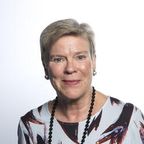
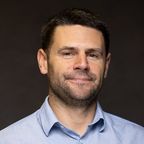
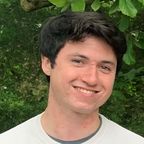


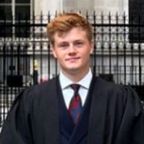


Louis Reitmann
Research Associate, Vienna Center for Disarmament and Non-Proliferation
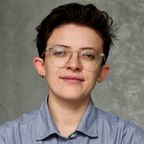


Ruth Smith
Deputy Director, NNSA’s Office of International Nuclear Safeguards, US Department of Energy










Research Associate, Vienna Center for Disarmament and Non-Proliferation



Deputy Director, NNSA’s Office of International Nuclear Safeguards, US Department of Energy



Steven C. Házy Lecturer, Stanford University
Rose Gottemoeller is the Steven C. Házy Lecturer at Stanford University’s Freeman Spogli Institute for International Studies and its Center for International Security and Cooperation. Before joining Stanford, Gottemoeller was the Deputy Secretary General of NATO from 2016 to 2019, where she helped to drive forward NATO’s adaptation to new security challenges in Europe and in the fight against terrorism. Prior to NATO, she served for nearly five years as the Under Secretary for Arms Control and International Security at the U.S. Department of State, advising the Secretary of State on arms control, non-proliferation and political-military affairs. While Assistant Secretary of State for Arms Control, Verification and Compliance in 2009 and 2010, she was the chief U.S. negotiator of the New Strategic Arms Reduction Treaty (New START) with the Russian Federation.
Reactor Physicist, National Nuclear Laboratory
Seddon is a reactor physicist at NNL with a background in nuclear reactor design. During Seddon’s PhD he designed the U-Battery, a novel high temperature micro reactor of 10 MWth output where this work required an understanding of both neutronics and thermal-hydraulics. Since finishing his PhD he completed a postdoctoral position at the University of Liverpool for two year which helped to advance the UK’s nuclear physics modelling capability, specifically around benchmarking and boiling water reactors.
Since joining NNL Seddon has taken an active interest into the field of safeguarding and proliferation resistance of new reactor designs which is paramount to deploying new nuclear technology. Seddon also supports the IAEA safeguarding mission by delivering a module on reactors for the UK’s proliferation pathways course provided to IAEA staff. Seddon has an active interest in the whole fuel cycle, particularly around closing the fuel cycle which could reduce the long-term nuclear waste burden but this brings new safeguarding challenges.

Doctoral Student, University of Cambridge
Dom is a final-year nuclear engineering doctoral student at the University of Cambridge. His research covers the optimisation of reactor design and economics, for which he investigates methods to detect and overcome bias inherent in computational decision-making. During his studies, he has presented award-winning papers at nuclear engineering and nuclear security conferences, founded a charitable sustainability consultancy, and attended COP as delegate for the American Nuclear Society.
Before joining Cambridge, he was a nuclear engineering consultant at Frazer-Nash Consultancy, wherein he worked with EDF Energy to develop their baseline decommissioning plan for the AGR fleet. In his abundant spare time, Dom plays tennis and is learning violin, much to the dismay of his housemates.

Graduate Scientist, Atomic Weapons Establishment
Cameron graduated from the University of Sheffield with an Integrated Master’s Degree in Chemistry. In 2022 he joined the Atomic Weapons Establishment (AWE) on the Evolve Science Pathway Graduate Scheme. During this time, he experienced placements with a variety of teams across the business developing his technical knowledge. His interest in Geopolitics and Nuclear Issues motivated him to pursue his UK PONI research topic exploring proliferation and nuclear energy in Africa.

PhD Candidate, RMIT University
Natasha Karner is a PhD candidate at RMIT University. Her research interests include emerging technologies and their impact on global security and governance - specifically, AI and autonomous weapons. She is a previous scholar in the OSCE-UNODA Arms Control and Disarmament Programme, and a member of BASIC think tank’s Emerging Voices Network on nuclear weapons policy.
She has written on AI and nuclear early warning systems (EWS), military uses of personal data, and in 2021 was named a 'Young Women to Watch in International Affairs' by the Young Australians in International Affairs.

Graduate, Consultancy
Tom Layhe is a 23-year-old Graduate Analyst at JP Morgan and reservist in the British Army. He graduated from King's College London with a BA (Hons) War Studies in 2022, having been awarded the 'Sir Michael Howard Award for Best Graduating Student'.
Whilst at King's, he worked with the Royal Navy Strategic Studies Centre as a Future Maritime Strategist Fellow to write his dissertation on nuclear deterrence policy. This dissertation was published in the Naval Review in 2023, and will provide the foundations for his presentation at this year's PONI Conference. He intends to continue this research in 2024 with an MSc at the London School of Economics, and currently maintains his interest in global affairs and security as a RUSI NextGen Ambassador.

Senior Security Consultant, National Nuclear Laboratory
Steve has approximately 18 years’ experience in nuclear security, starting in 2004 where he joined Civil Nuclear Constabulary, performing a variety of roles across different Tactical Firearms Teams and during the last 5 years of his policing career he worked extensively on the Sellafield Site Security Enhancement Programme. During this time, he helped develop of two Category I facilities within a changing and challenging ONR regulatory framework moving from prescriptive to outcome based requirements.
In early 2020 he joined NNL as a Senior Security Advisor and became the NNL Security & Resilience Manager in April 2022. He has recently moved to a Senior Security Consultant role where he is being appointed security technical lead role on a significant infrastructure project that will deliver world class capabilities to NNL.

Research Associate, Vienna Center for Disarmament and Non-Proliferation
Louis Reitmann is a Research Associate at the Vienna Center for Disarmament and Non-Proliferation (VCDNP), focusing on export controls, nuclear diplomacy, and diversity, equity, and inclusion in the nuclear field. Louis is a board member of the Emerging Voices Network, an initiative of the British American Security Information Council (BASIC). He has been selected as one of 25 Leaders for Tomorrow by the UN programme #Youth4Disarmament.
Louis has previously worked as an export control officer at Imperial College London and supported the EU Special Envoy for Disarmament and Non-Proliferation as a Blue Book Trainee at the European External Action Service. Between 2019 and 2021, he worked as a financial crime analyst in the City of London. Louis holds an MSc International Relations from the London School of Economics (LSE).

Policy Fellow, BASIC
Eva-Nour Repussard is a Policy Fellow at BASIC, where they work on the Nuclear Responsibilities and the Risk Reduction programmes. Prior to that, Eva-Nour was a Project and Research Assistant at SCRAP Weapons, co-coordinating the strategic stability project. They hold a MA from King’s College London in Intelligence and International Security and a BA (Hons) in International Relations from the University of Birmingham and Fudan University in Shanghai.
Eva-Nour’s expertise is on the cyber-nuclear nexus. They notably have spoken at NATO’s 5th Early-Career Nuclear Strategists Workshop, at the EU Non-Proliferation and Disarmament Conference (EUNPDC), and at CSIS PONI Winter Conference on the cyber-nuclear nexus, and its threat to strategic stability and deterrence.

Graduate Physicist, Atomic Weapons Establishment (AWE)
Aaron Simpson graduated from the University of Surrey with a Master’s degree in Physics in 2021 which included a placement year with the Atomic Weapons Establishment (AWE). He subsequently joined the AWE Physics graduate scheme as an Applied Scientist and is nearing the end of his time on the two-year graduate scheme.
During his time at AWE he has taken on multiple roles in different teams in the company but the majority of his work has been based around radiation detection.

Deputy Director, NNSA’s Office of International Nuclear Safeguards, US Department of Energy
Ruth Smith is the Deputy Director for the Office of International Nuclear Safeguards in the United States’ Department of Energy. She has worked in the international security arena for two decades, for the United States Departments of Defense, Homeland Security, Energy, Justice, the White House, and private sector security and defense clients. In her current role, Ms Smith leads engagements with industry, government, and foreign partners to promote international nuclear safeguards and nonproliferation.
From 2020 to 2021, Ms Smith served as Deputy Director of the Domestic Radiological Security Program in the United States Department of Energy. In this role, she led a team responsible for reducing radiological risks in the United States. Previously, Ms. Smith spent several years as a Senior Program Manager for International Nuclear Safeguards Engagement Program, managing a portfolio of engagements in Latin America, Africa, and the Middle East to bolster the safeguarding of nuclear technology for peaceful uses.

Research Fellow, King’s College London
Dr Sarah Tzinieris is a Research Fellow in the Centre for Science and Security Studies (CSSS) in the Department of War Studies at King’s College London. She holds a MPhil and PhD in International Relations from the University of Cambridge. Sarah’s research interests include emerging challenges to the world order, and she is currently undertaking research on AUKUS, China’s development of a sanctions policy, India’s Grand Strategy, and state-sponsored nuclear terrorism.
Sarah recently published, as a co-editor, The Oxford Handbook of Nuclear Security with Oxford University Press, the first comprehensive academic volume to be written on nuclear security. Sarah is also closely involved with Security & Defence PLuS, a partnership of three universities – King’s College London, University of New South Wales and Arizona State University – and is the Editor of its Collected Essays platform, which publishes scholarly and policy research on AUKUS.

PhD Candidate, University of Glasgow
Duanyi Yi is a PhD candidate at the School of Social & Political Sciences, University of Glasgow.
The title of her PhD thesis is How Unique was China’s Nuclear Strategy: The Relations Between Chinese Communist Strategic Culture and Nuclear Strategy (1964-1993).